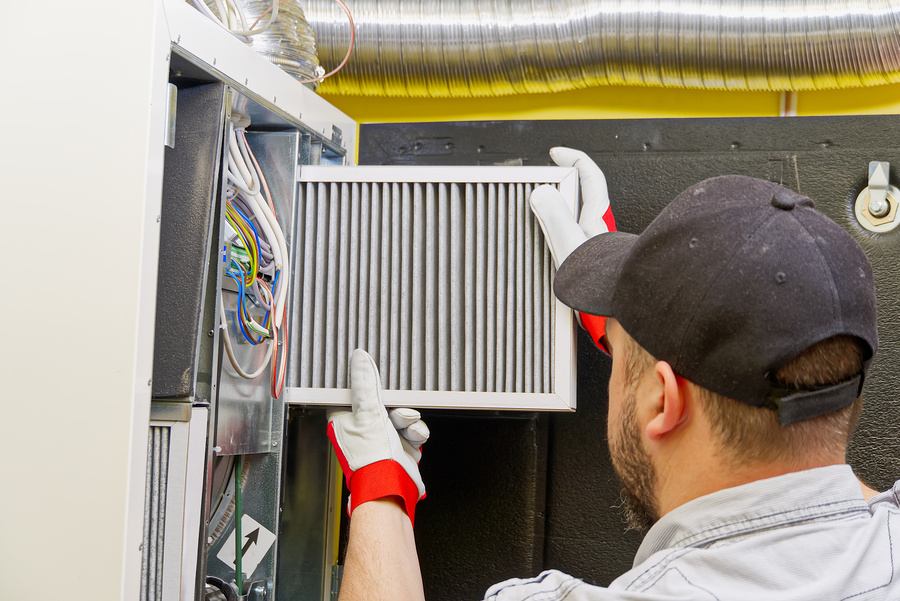When winter sets in, the last thing any of us want to deal with is a failing heating system. That’s why understanding different furnace types is key to staying warm, energy-efficient, and cost-conscious. With so many options—gas, electric, oil, and dual-fuel—it can be difficult to determine which is right for your home. At Atlantic Plumbing, Heating & Air Conditioning Inc., we’ve helped countless homeowners make informed decisions based on climate, fuel availability, and budget. In this blog, we’re breaking down the main furnace types, their pros and cons, and when each is the ideal choice.
Types of Furnaces
Your furnace is the heart of your heating system—and not all furnace types are created equal. Here’s how gas, electric, oil, and dual-fuel models compare.
Gas Furnaces
Gas furnaces are among the most popular heating systems, known for their efficiency and reliability. They operate by burning natural gas to produce heat, which is then distributed throughout your home via ductwork.
- Pros: Gas furnaces are highly efficient and can lower energy bills. They heat spaces quickly and provide consistent warmth. Modern gas furnaces have high AFUE (Annual Fuel Utilization Efficiency) ratings, often above 90%.
- Cons: Installation costs can be higher due to the need for gas lines. They require regular maintenance to ensure safe operation.
Ideal Usage: Gas furnaces are best suited for homes with existing natural gas lines and in regions where natural gas is more affordable than electricity.
Electric Furnaces
Electric furnaces use electrical resistance to generate heat, making them a clean and safe option. They are typically easier to install and maintain compared to gas furnaces.
- Pros: Electric furnaces are safer since they don’t involve combustion. They are also quieter and have lower upfront installation costs.
- Cons: They can be more expensive to operate, especially in areas with high electricity rates. They may take longer to heat a space compared to gas furnaces.
Ideal Usage: Electric furnaces are ideal in regions with moderate climates or where electricity is inexpensive. They are also suitable for homes without access to natural gas.
Oil Furnaces
Oil furnaces use heating oil to produce heat, making them a common choice in areas where natural gas is not readily available. They are known for their robust heating capabilities.
- Pros: Oil furnaces can produce intense heat, making them effective in colder climates. They are durable and can last for many years with proper maintenance.
- Cons: They require an on-site oil tank and regular refueling. Oil prices can be volatile, affecting the cost of operation.
Ideal Usage: Oil furnaces are suitable for homes in rural areas without access to natural gas and in regions with harsh winter conditions.
Dual-Fuel Furnaces
Dual-fuel furnaces combine the benefits of gas and electric heating. They switch between gas and electric power based on the outside temperature, optimizing efficiency and cost-effectiveness.
- Pros: Dual-fuel systems offer versatility and can reduce energy costs by using the most efficient fuel source for current conditions. They provide reliable heating across different climates.
- Cons: The initial cost can be higher due to the complexity of the system. They require both gas and electric hookups.
Ideal Usage: Dual-fuel furnaces are perfect for homeowners seeking flexibility in fuel options and in areas with fluctuating temperatures.
Comparison Table of Furnace Types
| Furnace Type | Efficiency | Installation Cost | Operating Cost | Ideal Usage |
|---|---|---|---|---|
| Gas | High | Medium to High | Low | Homes with gas lines, colder climates |
| Electric | Moderate | Low to Medium | High | Moderate climates, no gas access |
| Oil | Moderate to High | Medium | Variable | Rural areas, cold climates |
| Dual-Fuel | High | High | Low to Moderate | Variable climates, flexibility in fuel |
Factors to Consider When Choosing a Furnace
When selecting a furnace, several factors should guide your decision to ensure you get the best system for your home.
Climate
The local climate significantly impacts the type of furnace you should choose. In colder regions, a gas or oil furnace may provide the necessary warmth, while in milder climates, an electric furnace might suffice.
Fuel Availability
Consider the availability and cost of different fuel sources in your area. If natural gas is readily available and affordable, a gas furnace is a logical choice. Conversely, if electricity is cheaper, an electric furnace may be more economical.
Budget
Your budget will influence the type of furnace you can afford. While electric furnaces have lower upfront costs, gas and oil furnaces may offer better long-term savings through lower operating costs.
Efficiency
Look for furnaces with high efficiency ratings to maximize energy savings. The AFUE rating indicates how efficiently a furnace converts fuel into heat. Opt for models with higher AFUE percentages for better efficiency.
Understanding the different furnace types is the first step to ensuring long-term comfort and savings. Whether you go with gas, electric, oil, or a dual-fuel system, the right furnace will depend on your home’s size, location, available fuels, and energy goals. At Atlantic Plumbing, Heating & Air Conditioning Inc., we help homeowners make the smartest heating decisions for their needs. If you’re unsure which furnace type suits your space best, we’re here to offer expert advice every step of the way.
Thinking about upgrading your furnace? Let us help you make the best choice. Get in touch with us today to explore our full range of furnace types and schedule a personalized consultation. Stay warm, save money, and enjoy peace of mind this winter.
